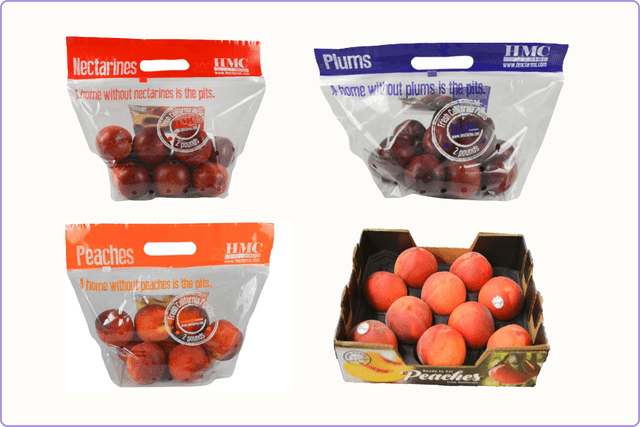CDC Warns Deadly Listeria Outbreak Linked to Recalled Peaches, Plums, and Nectarines
Fact checked by Nick Blackmer
HMC Farms has issued a voluntary recall of its whole peaches, nectarines, and plums linked to a multistate Listeria outbreak.
The outbreak has sickened at least 11 people across seven states since 2022, according to the CDC.
Health officials are urging people who may still have the fruit in their homes not to consume it and to discard it immediately.
At least 11 people have fallen seriously ill after eating recalled peaches, nectarines, and plums potentially contaminated with Listeria monocytogenes, the Centers for Disease Control and Prevention (CDC) shared Monday.
The Listeria outbreak—which has been reported in seven states so far—spans May to November 2022 and May to November 2023. Health officials said the number of sick people is likely to be much higher than the 11 reported cases.
The CDC announcement comes following a voluntary recall of whole peaches, plums, and nectarines issued by HMC Group Marketing, Inc., which does business as HMC Farms.
The company said that the stone fruits sold between May 1 and November 15, 2022, and May 1 and November 15, 2023, have the “potential to be contaminated with Listeria monocytogenes.”
The recall affects fruit sold individually and in two-pound bags branded with “HMC Farms” or “Signature Farms.” All recalled fruit was conventionally grown, not organic.
Though the recalled fruit is no longer available on store shelves, the company said consumers may still have the fruit at home. In that case, people who may have bought and frozen any of the stone fruits are urged to check their freezers for the fruit, and immediately discard it.
Of the 11 reported cases of Listeria infections—known as listeriosis—10 people with available information have been hospitalized. The CDC also shared that one person in California died from their illness, and another pregnant person who fell ill had a preterm labor.
Here’s what to know about the Listeria infection outbreak, and what symptoms are associated with listeriosis.

FDA
Signs and Symptoms of Listeriosis
Listeria is the third leading cause of death from foodborne illness in the U.S., causing an estimated 1,600 illnesses and 260 deaths each year. Pregnant people and newborns, adults aged 65 and up, and people with weakened immune systems have the highest risk of listeriosis.
The bacteria can cause intestinal illness, which is limited to the digestive system, or invasive illness, which means it has spread beyond the gut to other parts of the body.
Intestinal illness linked to Listeria is often mild and short-lived. It’s also rarely diagnosed because people either don’t seek medical attention or don’t have their stool tested for Listeria.
Symptoms of intestinal illness from listeriosis start within 24 hours of eating the contaminated food and typically include Nausea and vomiting.
Fever
Muscle aches
Diarrhea
If the bacteria spread beyond the intestines (invasive illness), more severe symptoms usually start within two weeks of eating the contaminated food and include:
Fever
Flu-like symptoms (muscle aches, fatigue)
Headache
Stiff neck
Confusion
Loss of balance
Seizure
Symptoms of listeriosis are typically mild in pregnant people, but having a Listeria infection during pregnancy can lead to miscarriage, stillbirth, premature delivery, or life-threatening infection of the newborn.
Listeriosis may be diagnosed through a laboratory test on body tissue or fluid like blood, spinal fluid, or the placenta.
Treatment for invasive listeriosis is commonly antibiotics; people with intestinal listeriosis are usually treated with supportive care, including rest, plenty of fluids, and monitoring.
The CDC and FDA, along with other public health and regulatory officials in several states are still investigating the multistate outbreak.
The agencies are urging people not to eat, sell, or serve the recalled fruit. If people do have any of the stone fruit in their home, health officials and HMC Farms recommend immediately discarding it. Consumers are also invited to contact HMC Farms’ consumer information desk at 844-483-3867, Monday-Friday, 8 a.m. - 8:00, ET.
For more Health.com news, make sure to sign up for our newsletter!
Read the original article on Health.com.

